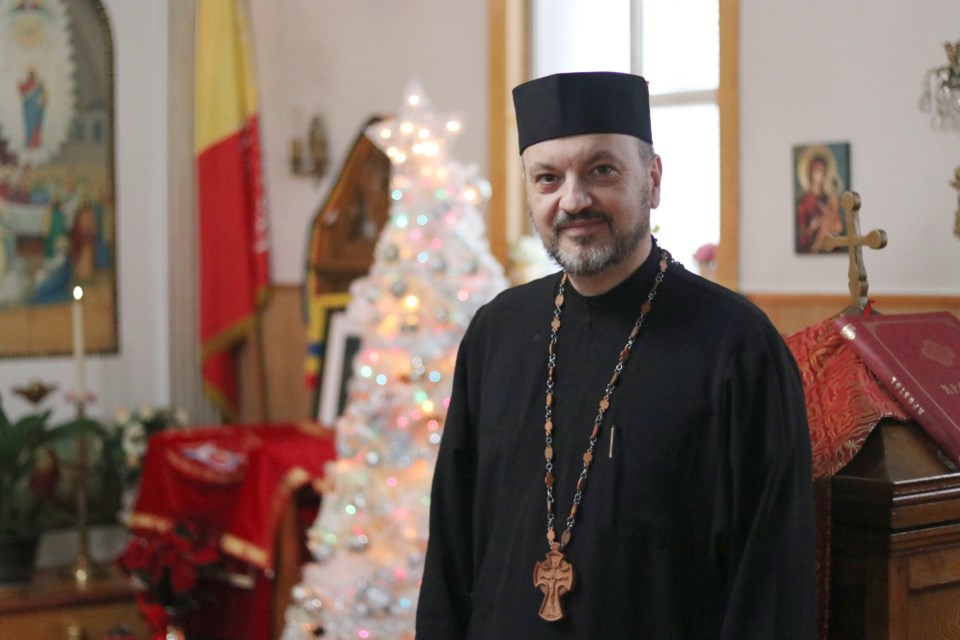From a young age, Orlando Geonea has always celebrated Christmas Day at a church.
Geonea is a priest at the St. Mary's Romanian Orthodox Church, located on Eighth Avenue. Last year, he moved with his family to Timmins from Bucharest, Romania.
Staying home on Dec. 25 has never been an option for him.
“First time when I came here Christmas was a little bit weird because I saw people used to celebrate Christmas Eve than Christmas,” he said. “It’s a very important day, a special day, you can’t stay home.”
In Romania, Christmas Day is mainly about the birth of Jesus Christ, although traditions in different regions can vary.
As a priest in Romania, Geonea visited sick people, gave them communion and went around to houses blessing them with an icon. On Christmas Day, people brought food— usually bread, cheese and pork — to the church. After the liturgy a priest blessed the food, then people took the food home or stayed at the church and socialized.
“Romanian priests used to keep the traditions because it’s part of our nation, a part of us,” he said. “More important than money are our souls, our traditions. We can be happy with money but money can’t give us important. Most important, is our family.”
Many Orthodox Christians also abstain from eating meat and dairy during the Nativity Fast, which lasts from Nov. 15 to Dec. 25. People are allowed to eat fish on certain days. Once Christmas comes, people can break their fast.
“It’s the first time after a month and a half when we can eat meat and other animal products,” Geonea said. "It’s a special period, beautiful period.”
For Christmas, women in Romania bake a sweet bread called Cozonac, while men make sausages and pork.
“It is mandatory to have a pig on a Christmas table,” Geonea said. “We have an amazing food in Romania and all people are very glad because Christmas is close. Like here, all children are very happy because they know they will receive many gifts.”
Another main tradition in Romania is singing carols. Children would go around houses, carolling, and receive apples, candies, nuts or some money. Geonea said he used to join his friends and go carolling since he was a kid, too.
“We have amazing, amazing carols,” he said. “We used to sing, people used to bring us many presents. It was the joy of this period.”
Romanians also celebrate St. Nicholas Day. Closer to the end of December, many communities host winter festivals where people perform a bear dance ritual, which dates back to pre-Christian times. During the ritual, people wear bear furs or costumes and dance to repel bad evil and bring good luck.
For Geonea, Christmas has to be celebrated at a church where he said people can be closer to God.
On Dec. 25, the St. Mary’s Romanian church in Timmins will open its doors at 10 a.m. The liturgy starts at 10:30 a.m.
“It’s important to celebrate Christmas Day not at home but in the church, not like the usual off day,” Geonea said. “After the liturgy, we’re going to stay here, eat cookies, drink coffee and socialize.”



